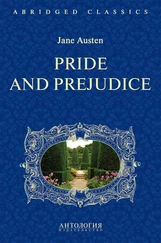But they were entirely ignorant of what had passed; and their raptures continued, with little intermission, to the very day of Lydia’s leaving home.
On the very last day of the regiment’s remaining at Meryton, Mr. Wickham dined, with other of the officers, at Longbourn; and so little was Elizabeth disposed to part from him in good humour, that on his making some inquiry as to the manner in which her time had passed at Hunsford, she mentioned Colonel Fitzwilliam’s and Mr. Darcy’s having both spent three weeks at Rosings, and asked him if he was acquainted with the former.
He looked surprised; but with a moment’s recollection and a returning smile, replied, that he had formerly seen him often; and, after observing that he was a very gentlemanlike man, asked her how she had liked him. Her answer was warmly in his favour. With an air of indifference he soon afterwards added:
“How long did you say he was at Rosings?”
“Nearly three weeks.”
“And you saw him frequently?”
“Yes, almost every day.”
“His manners are very different from his cousin’s.”
“Yes, very different. But I think Mr. Darcy improves upon acquaintance.”
“Indeed!” cried Mr. Wickham with a look which did not escape her. “And pray, may I ask-.” But checking himself, he added, in a gayer tone, “Is it in address that he improves? For I dare not hope,” he continued in a lower and more serious tone, “that he is improved in essentials.”
“Oh, no!” said Elizabeth. “In essentials, I believe, he is very much what he ever was.”
While she spoke, Wickham looked as if scarcely knowing whether to rejoice over her words, or to distrust their meaning. There was a something in her countenance which made him listen with an apprehensive and anxious attention, while she added:
“When I said that he improved on acquaintance, I did not mean that his mind or his manners were in a state of improvement, but that, from knowing him better, his disposition was better understood. Particularly in regard to his treatment of stable boys.”
Wickham’s alarm now appeared in a heightened complexion and agitated look; for a few minutes he was silent, till, shaking off his embarrassment, he turned to her again, and said in the gentlest of accents:
“You, who so well know my feeling towards Mr. Darcy, will readily comprehend how sincerely I must rejoice that he is wise enough to assume even the appearance of what is right. I only fear that the sort of cautiousness to which you, I imagine, have been alluding, is merely adopted on his visits to his aunt, of whose good opinion and judgment he stands much in awe. His fear of her has always operated, I know, when they were together; and a good deal is to be imputed to his wish of forwarding the match with Miss de Bourgh, which I am certain he has very much at heart.”
Elizabeth could not repress a smile at this, but she answered only by a slight inclination of the head. She saw that he wanted to engage her on the old subject of his grievances, and she was in no humour to indulge him. The rest of the evening passed with the appearance, on his side, of usual cheerfulness, but with no further attempt to distinguish Elizabeth; and they parted at last with mutual civility, and possibly a mutual desire of never meeting again.
When the party broke up, Lydia returned with Mrs. Forster to Meryton, from whence they were to set out early the next morning. The separation between her and her family was rather noisy than pathetic. Kitty was the only one who shed tears; but they were tears of vexation and envy. Mrs. Bennet was diffuse in her good wishes for the felicity of her daughter, and impressive in her injunctions that she should not miss the opportunity of enjoying herself as much as possible-advice which there was every reason to believe would be well attended to; and in the clamorous happiness of Lydia herself in bidding farewell, the more gentle adieus of her sisters were uttered without being heard.
HAD ELIZABETH’S OPINION been all drawn from her own family, she could not have formed a very pleasing opinion of conjugal felicity or domestic comfort. Her father, captivated by youth and beauty, and that appearance of good humour which youth and beauty generally give, had married a woman whose weak understanding and illiberal mind had very early in their marriage put an end to all real affection for her. Respect, esteem, and confidence had vanished for ever; and all his views of domestic happiness were overthrown. But Mr. Bennet was not of a disposition to seek comfort for the disappointment which his own imprudence had brought on. Instead, he sought to ensure that his daughters would not follow in their mother’s silly, idle footsteps. In this regard, he had tried five times, and succeeded two. Other than the gift of Jane and Elizabeth, to Mrs. Bennet he was very little otherwise indebted. This is not the sort of happiness which a man would in general wish to owe to his wife.
Elizabeth, however, had never been blind to the impropriety of her father’s behaviour as a husband. She had always seen it with pain; but respecting his abilities, and grateful for his affectionate treatment of herself, she endeavoured to forget what she could not overlook, and to banish from her thoughts that continual breach of conjugal obligation and decorum. This had been especially arduous during their trips to China, which Mr. Bennet had supervised without the company of his wife, and during which he had taken many a beautiful Oriental to his bedchamber. Master Liu had defended this as acquiescence to local custom, and Elizabeth had more than once felt the sting of wet bamboo on her back for daring to question her father’s propriety. But she had never felt so strongly as now the disadvantages that must attend the children of so unsuitable a marriage.
When Lydia went away she promised to write very often and very minutely to her mother and Kitty; but her letters were always long expected, and always very short. Those to her mother contained little else than that they were just returned from the library, where such and such officers had attended them, and that she had a new gown, or a new parasol, which she would have described more fully, but was obliged to leave off in a violent hurry, as Mrs. Forster called her, and they were going off to the camp; and from her correspondence with her sister, there was still less to be learnt-for her letters to Kitty, though rather longer, were much too full of lines under the words to be made public.
After the first fortnight or three weeks of her absence, health, good humour, and cheerfulness began to reappear at Longbourn. Everything wore a happier aspect. The families who had fled the infestation came back again, and summer finery and summer engagements arose for the first time in memory. Mrs. Bennet was restored to her usual querulous serenity; and, by the middle of June, Kitty was so much recovered as to be able to enter Meryton without tears; an event of such happy promise as to make Elizabeth hope that by the following Christmas she might be so tolerably reasonable as not to mention an officer above once a day, unless, by some cruel and malicious arrangement at the War Office, another regiment should be quartered in Meryton.
The time fixed for the beginning of Elizabeth’s northern tour was now fast approaching, and a fortnight only was wanting of it, when a letter arrived from Mrs. Gardiner, which at once delayed its commencement and curtailed its extent. Due to the recent troubles in Birmingham, and the army’s want of more flints and powder, Mr. Gardiner would be prevented from setting out till a fortnight later in July, and must be in London again within a month, and as that left too short a period for them to go so far, and see so much as they had proposed, or at least to see it with the leisure and comfort they had built on, they were obliged to give up the Lakes, and substitute a more contracted tour, and, according to the present plan, were to go no farther northwards than Derbyshire. In that county there was enough to be seen to occupy the chief of their three weeks; and to Mrs. Gardiner it had a peculiarly strong attraction. The town where she had formerly passed some years of her life, and where they were now to spend a few days, was probably as great an object of her curiosity as all the celebrated beauties of Matlock, Chatsworth, Dovedale, or the Peak.
Читать дальше












